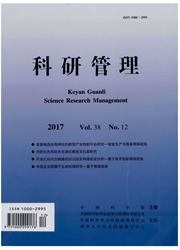

 中文摘要:
中文摘要:
在制度转型过程中,不连续创新是中国企业长期成功的发动机还是成长道路上的陷阱?本文基于组织学习的视角,采取案例研究的方法对南都电源不连续创新的决策和实施过程进行研究,结果表明:对已有技术领域来说,面临不连续创新的冲击,企业将采取原材料创新和产品架构创新、已有市场维持和新细分市场开拓的“双元平衡”演化战略;对新兴技术领域来说,企业将采取“逐步全面替代”的演化战略,广泛的知识搜索、非计划性组织学习以及创新性文化的培育对不连续创新具有促进作用。最后,不连续创新的成功实施能够促进企业技术能力的转变与替代、产品技术性能极大的提升以及新价值网络的构建。
 英文摘要:
英文摘要:
Whether discontinuous innovation is an engine for firms' long - term success during institutional transition or just a trap? The decision and implementation process of discontinuous innovation in Nandu Battery Company is analyzed. The results show that when facing a discontinuous innovation, a firm might take advantage of ambidextrous balance strategy in extant technology fields, making a balance between raw material innovation and product architectural innovation, maintaining the existing market and explo- ring new niche markets. While in emerging technology fields, the firm might take gradually complete substitution strategy instead, which extensive knowledge search, unplanned organizational learning, and innovative culture cultivation are critical factors for ac- celerating the success of discontinuous innovation. Moreover, discontinuous innovation promotes the transformation and substitution of old technological capability, offers sharp technology performance improvements, and constructs new value networks.
 同期刊论文项目
同期刊论文项目
 同项目期刊论文
同项目期刊论文
 期刊信息
期刊信息
